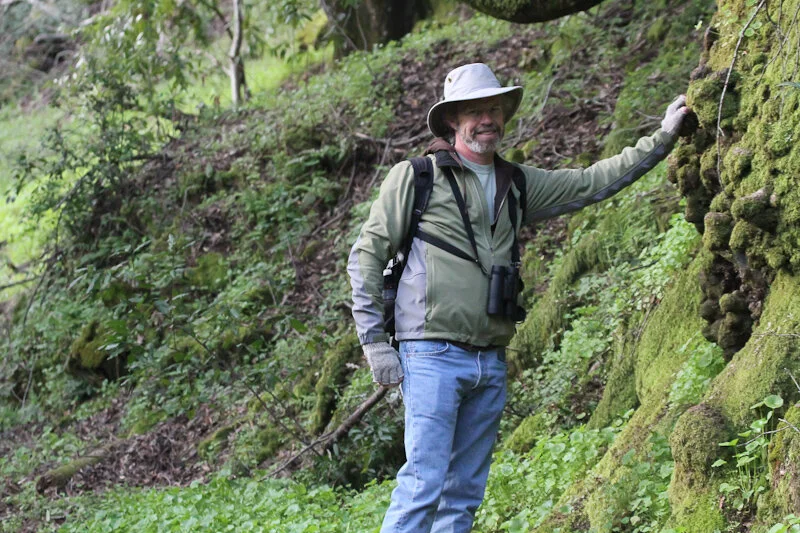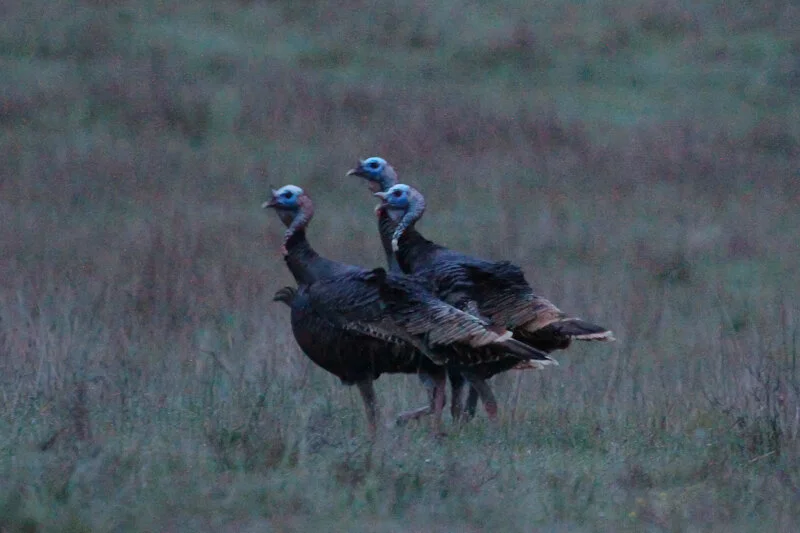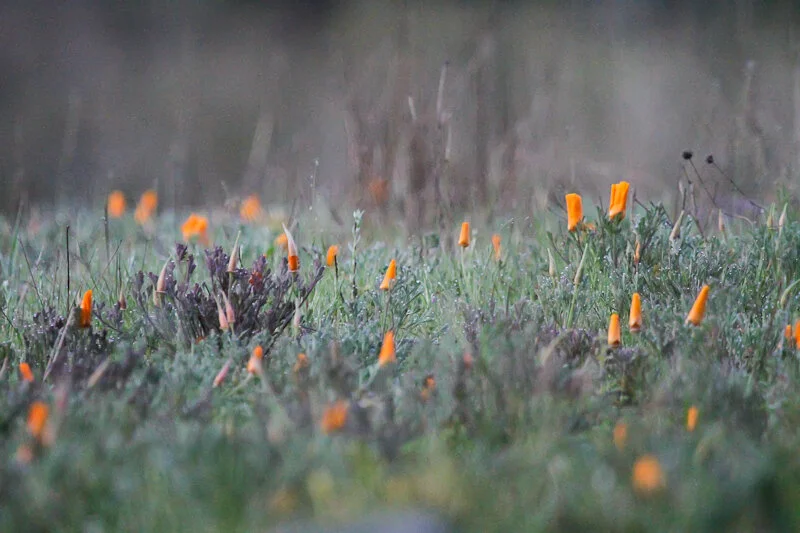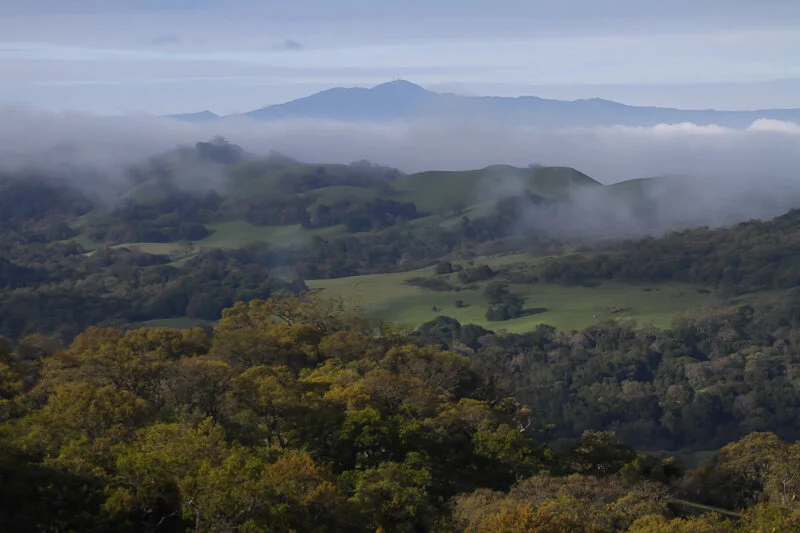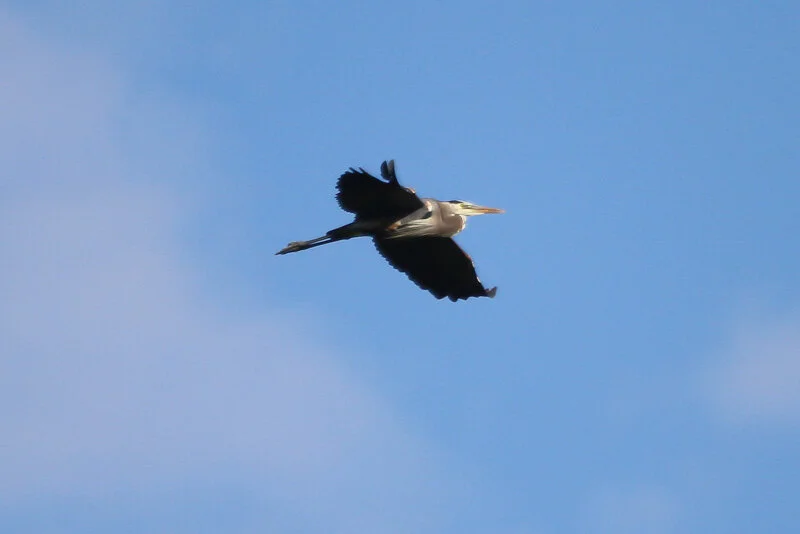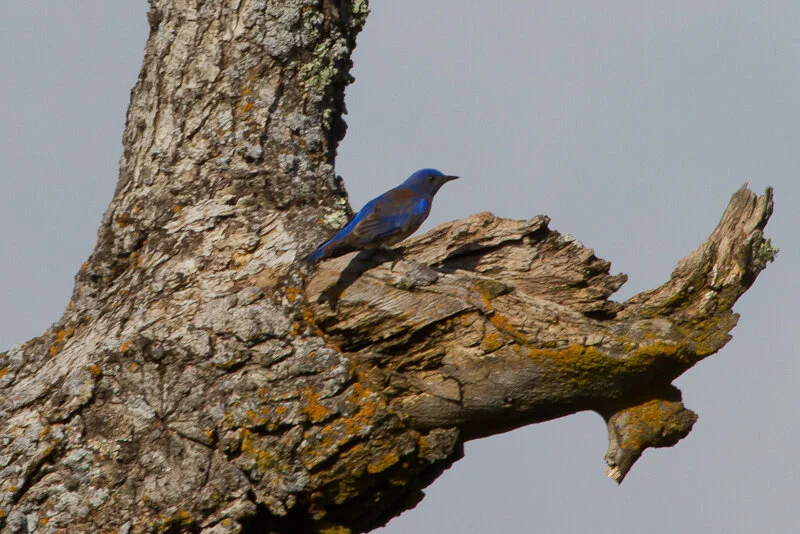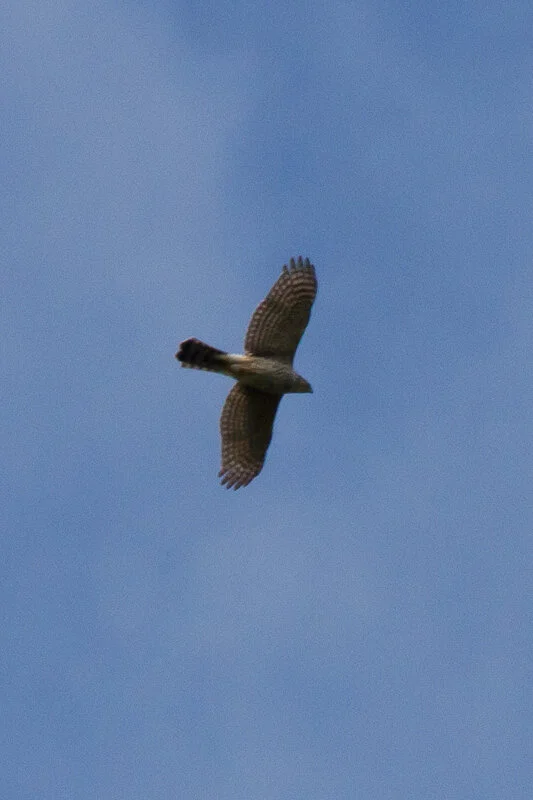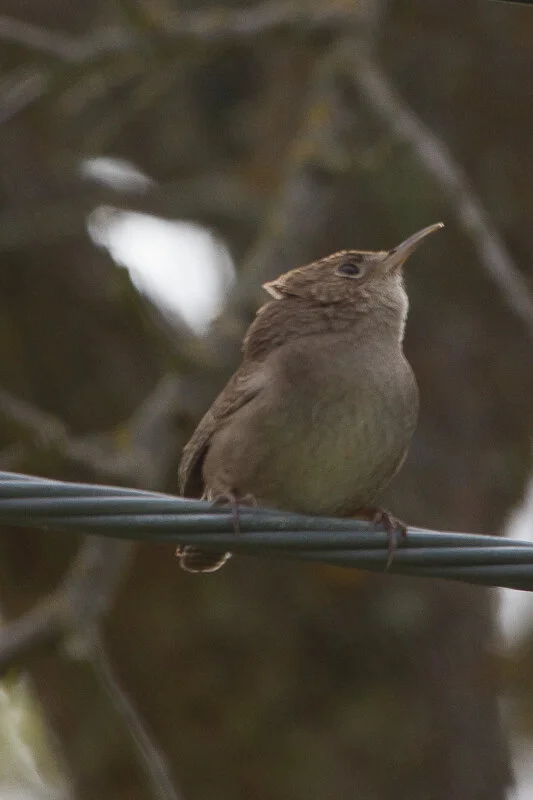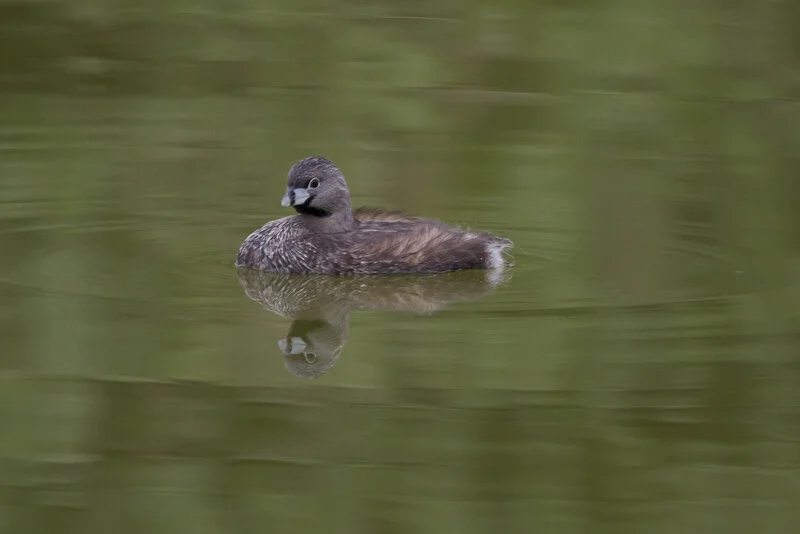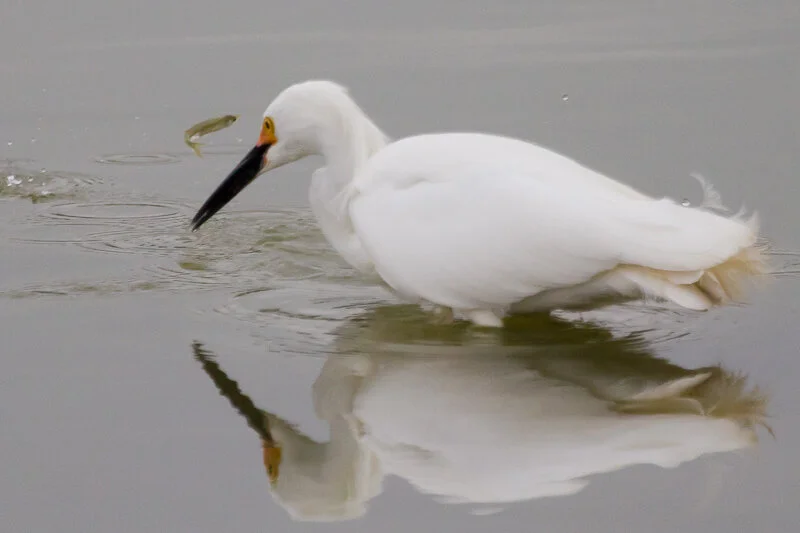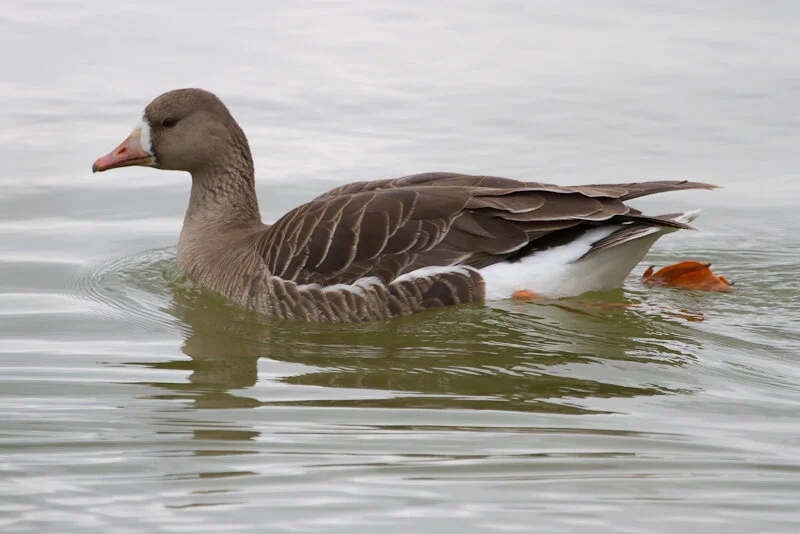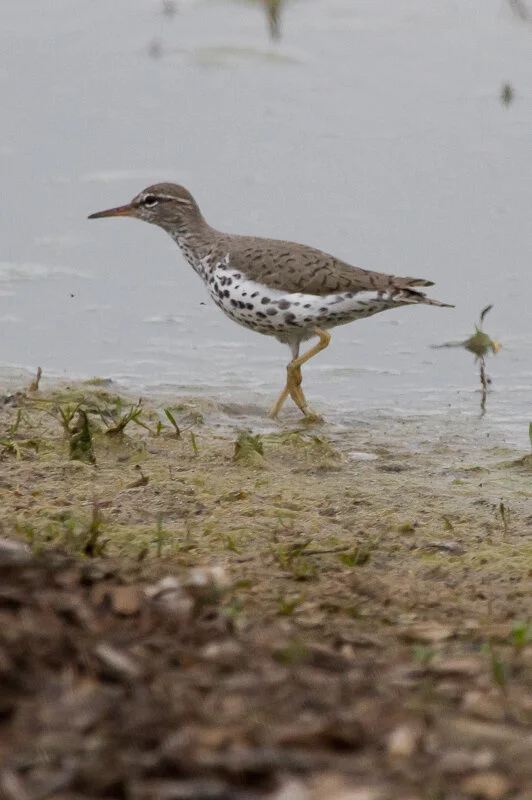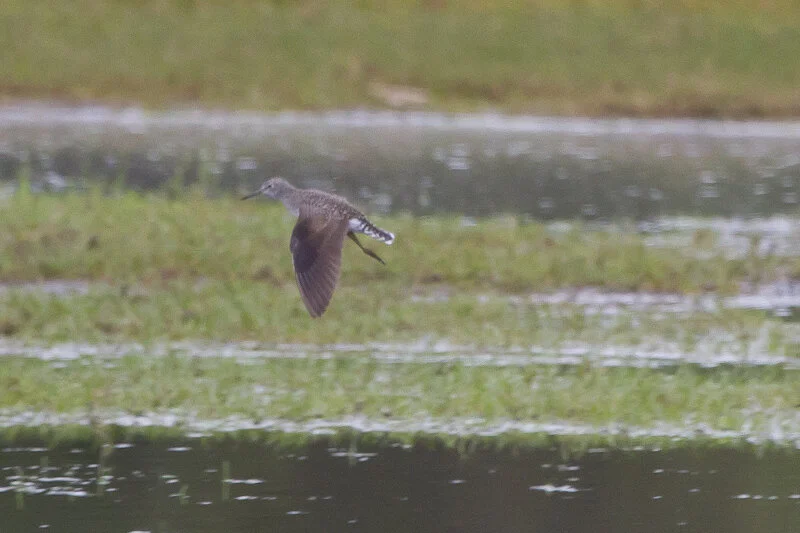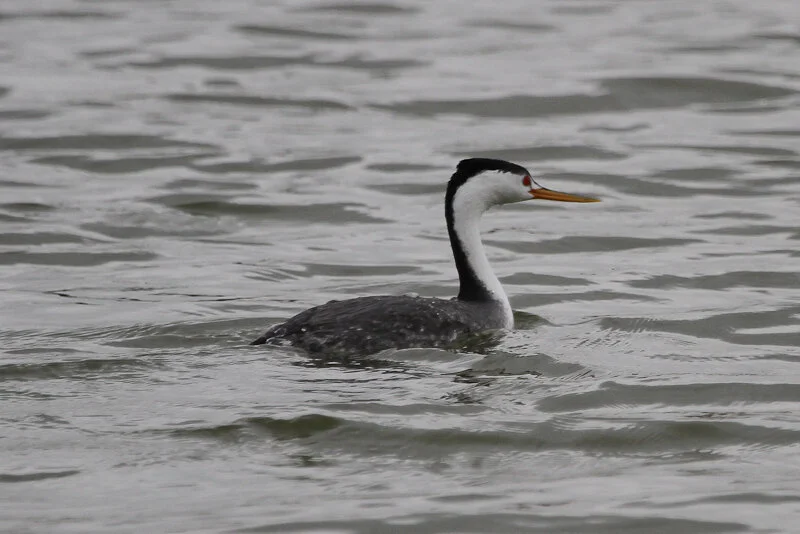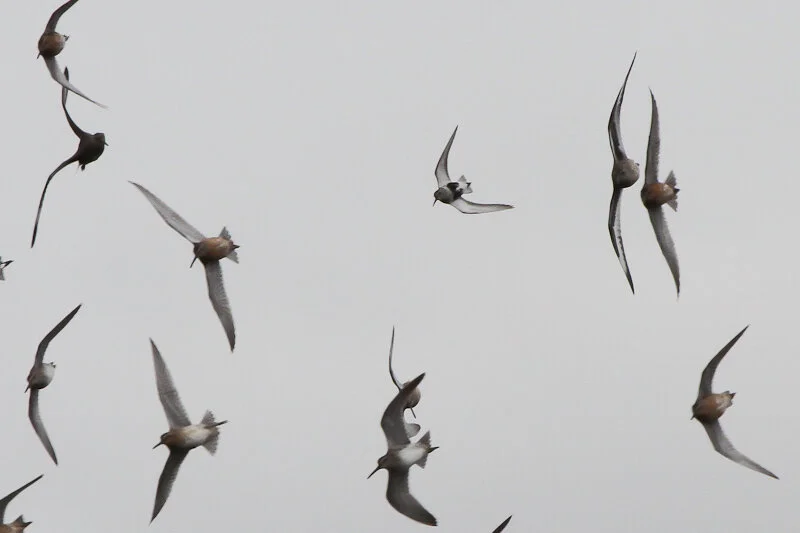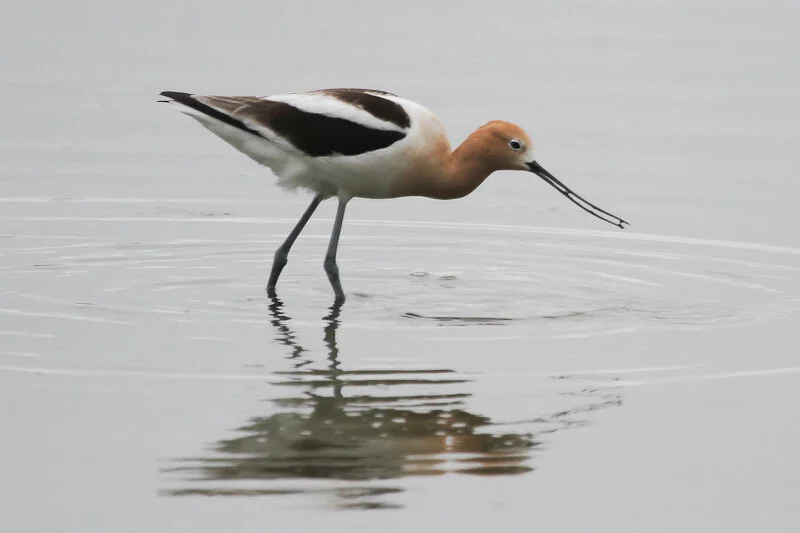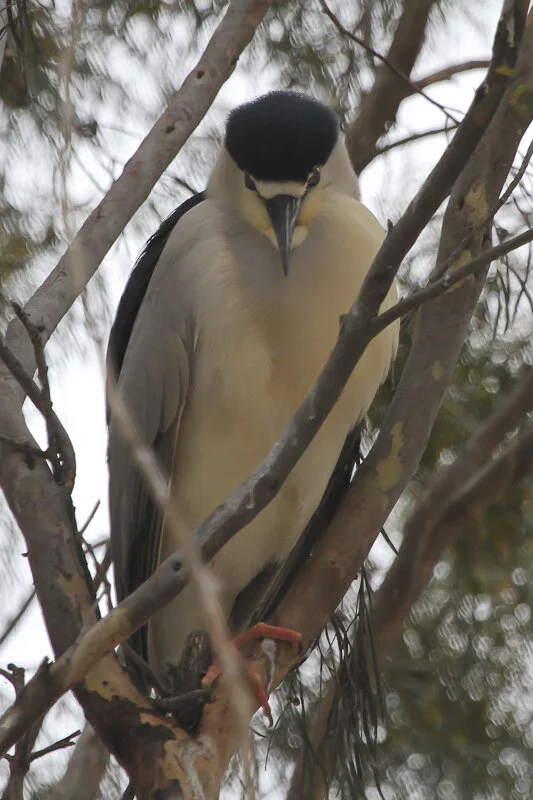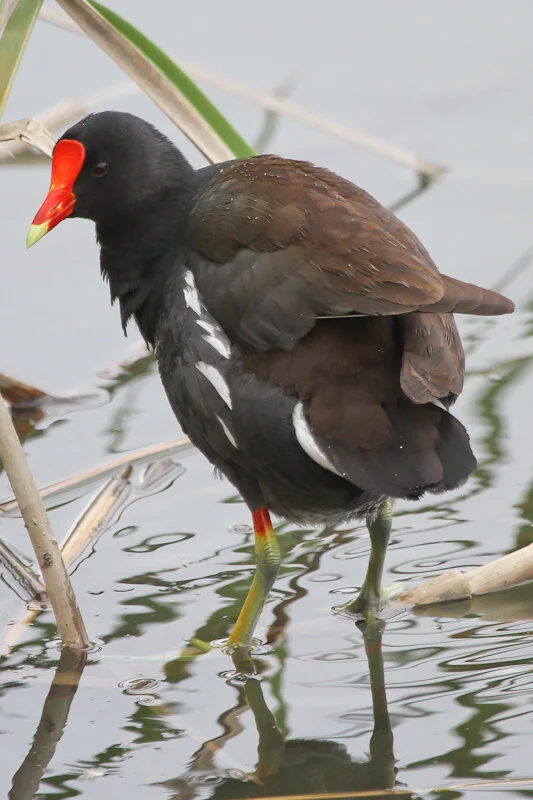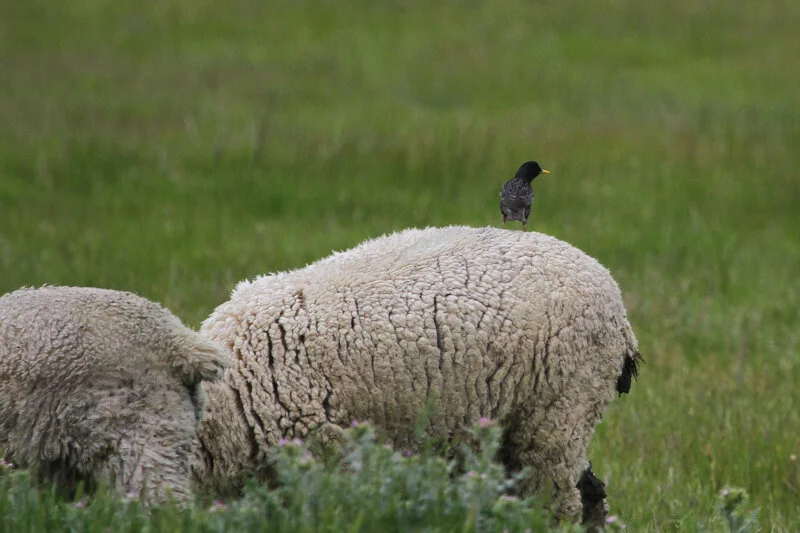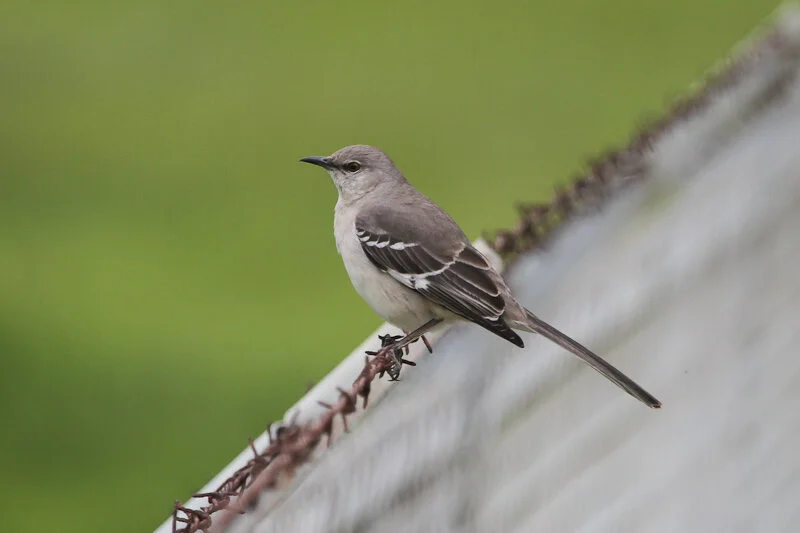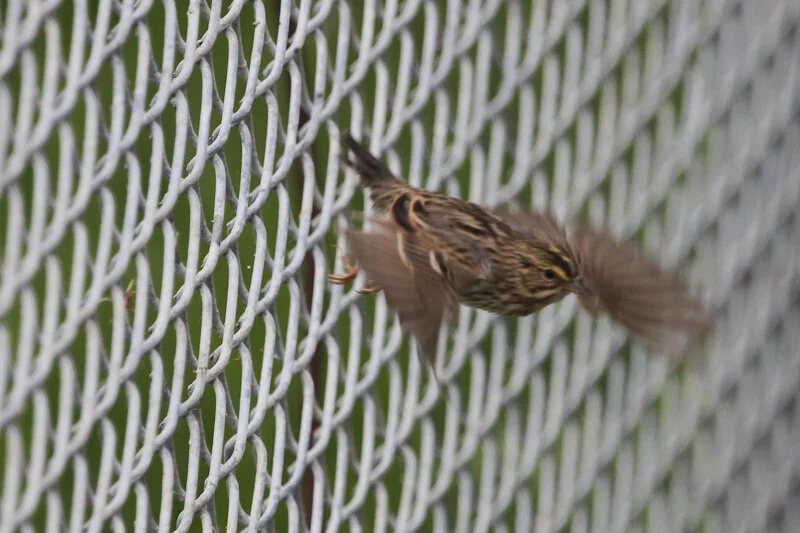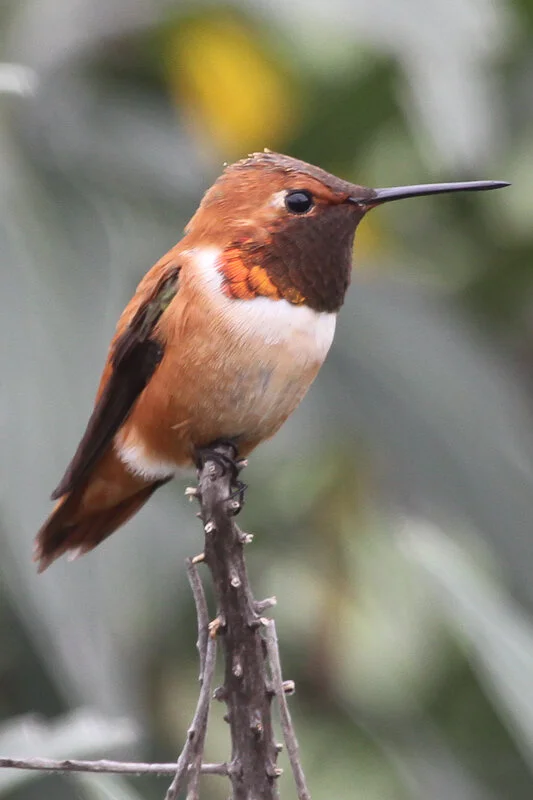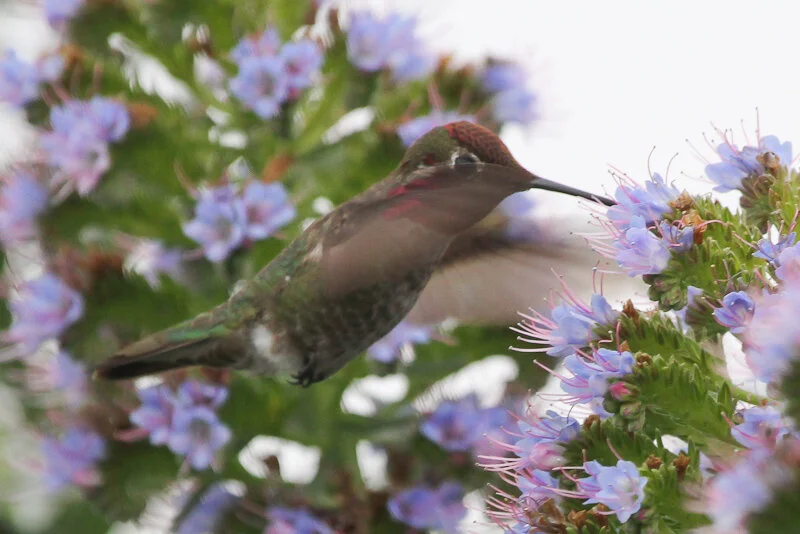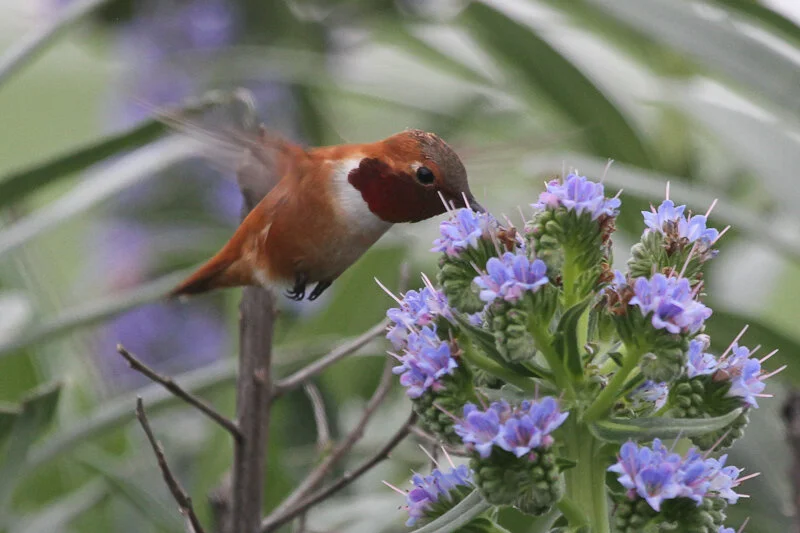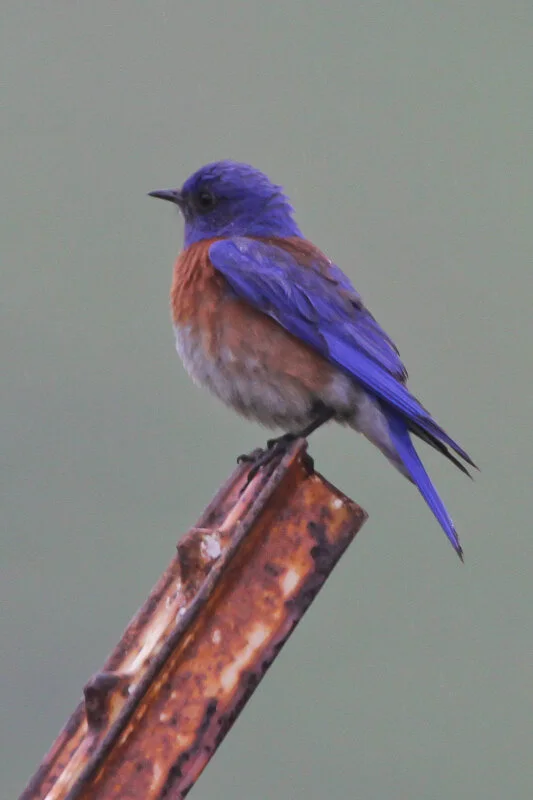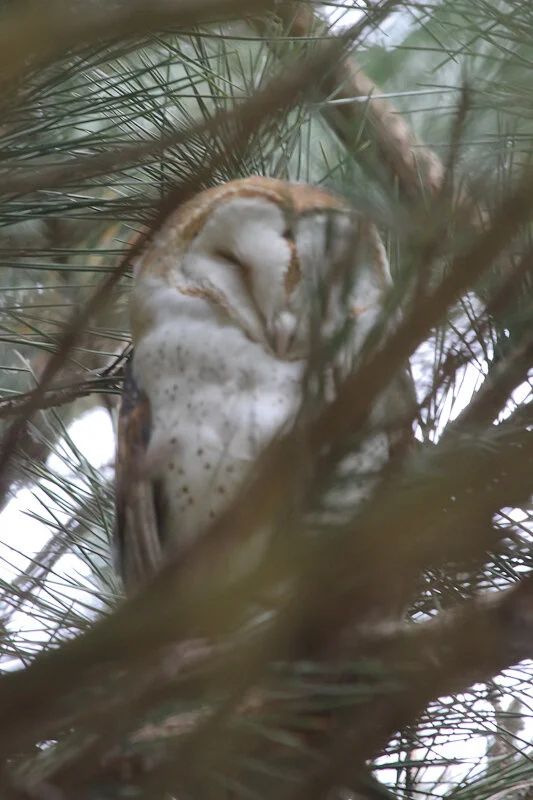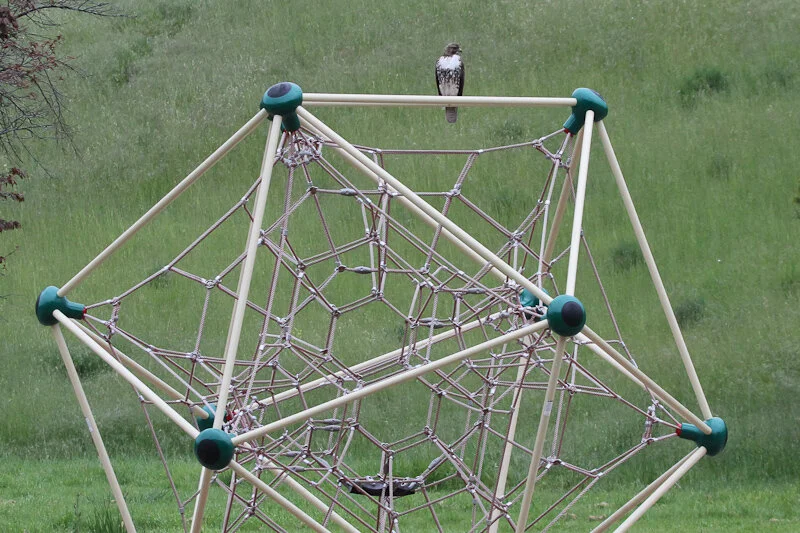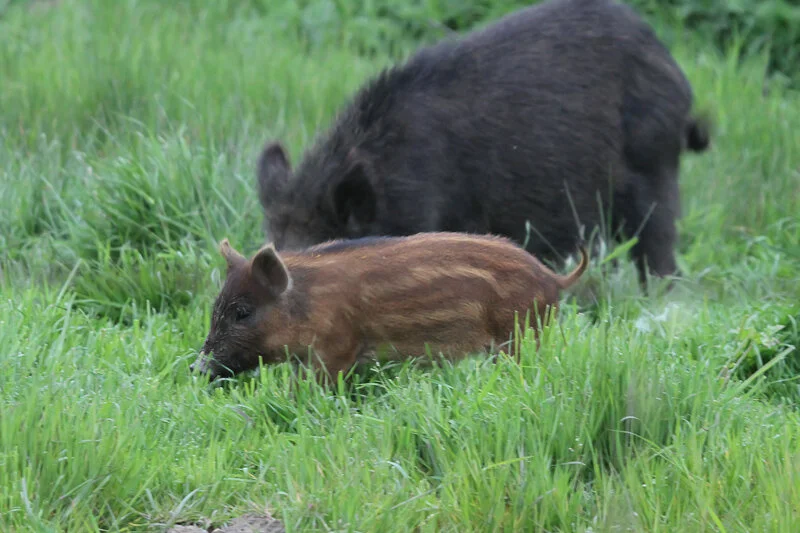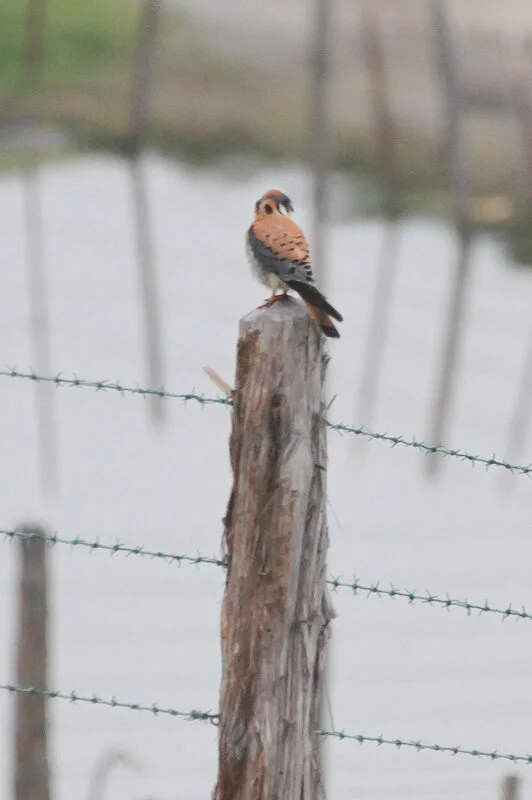The Jack Sparrows Spring Birdathon 2011
Monday 18 April 2011
Benefitting the Santa Clara County Audubon Society
It was late Sunday night when we finished packing for our adventure. "Frequent showers" were forecast for Monday, so we would need a change of clothes and extra shoes and plenty of raingear. And since we would not be stopping for food, we needed a full day's worth of provisions: coffee, chocolate, Pepsi -- you know, life-giving necessities -- as well as sourdough bread and cheese, Luna bars, "gorp", fruit and plenty of water.
We were settled into sleep by 2:00am. The alarm went off at 3:30am. We sprang out of bed, collected our provisions and birding gear and headed out into the night. Somehow the excitement of birding made up for the complete lack of rest.
Our first stop was on the slopes of Mount Hamilton, by Grant Lake in Joseph D. Grant County Park, a little before 5am. This was where we had heard Common Poorwills calling the year before. We stood in the cold night air, thankful that the rains hadn't started yet, and listened as the Poorwills failed to announce their presence. Instead of Poorwills, a Great Horned Owl hooted in the forest behind the lake. Then another answered in the valley on the other side. A third called from further away. That was encouraging. We also heard a Song Sparrow by the lake, Mallards again, Red-winged Blackbirds squawking and Wild Turkeys gobbling.
We drove further up the road, stopping at Twin Gates and Smith Creek where we attempted to hear a Western Screech Owl or possibly one of the rarer owls. No luck. Just more Great Horneds calling in the dark.
Last year we had intended to start all the way up at Smith Creek, but our relatively late start that year lead us to start less far up the mountain. This year we were early enough, arriving well before the full moon set and the east brightened with the first morning rays. Forest birds are most active in the morning, and as they wake up they begin singing. This dawn chorus is one of the most amazing things to witness, and a birder with a good ear can often pick out species calling that they won't get a chance to see in an entire day's birding. We however, are birders with fair-to-middling ears, so as the songs progressed from single melodies to overwhelming cacophany we identified only one bird that would elude us the rest of the day: Orange-crowned Warbler. We heard in the breaking dawn: Western Bluebirds, Western Scrub-Jays, Spotted Towhees, American Robins, Steller's Jays, California Towhees, more Wild Turkeys and even Wood Ducks. All of these we would later see once or perhaps many times throughout the day. If we had better-tuned ears we might have picked out some warblers, a vireo, a tanager, a local sparrow or an uncommon flycatcher, but no rarities presented themselves that we could confidently identify. Still, it was wonderful to hear the sounds of the natural world waking up. Because this part of Grant Ranch lies behind a long ridge, there are no sounds of the city to disrupt this wild preserve. It felt as if we were many leagues away from the bustle of the Bay Area.
Moonset at Smith Creek
Turkeys - just visible in the dawn light
After enjoying the chorus, we hiked in the dark up the trail that follows the creek. In the forest we heard woodpeckers and other birds calling in the trees above us. We heard one bird calling that we couldn't identify and I eventually climbed up the bank to try to get a look. I found him, a tiny Cassin's Vireo, singing loudly before he flew from one tree into another by the trail. In his second tree I was able to get a photograph.
Cassin's Vireo, a rare sighting for us
Ginger at Smith Creek
Barry at Smith Creek
Alongside the trail were many wildflowers. It was tempting to stop and take wildflower photographs, but every non-essential stop took time away from birding and possibly meant missing a bird later in the day. So I restrained myself, mostly. Here's one of the oh, dozen, wildflower photos that I ended up taking.
California Poppies -- a spot with many wildflowers
For some reason, my favorite animals are often black & white. Raccoon is my favorite mammal. California King Snake is my favorite snake. And Black Phoebe is my favorite bird. With all the amazing brightly colored birds in the world, I chose this perky little flycatcher. I dunno. I think it's beautiful.
Black Phoebe, Barry's favorite bird
This landscape photo epitomizes to me the beauty of the Bay Area. Rolling green oak-dotted hills leading down into a fog bank (San Jose is lurking beneath that fog), with the Santa Cruz hills poking up beyond and more clouds and fog behind that. Almost worth getting up at 3:30am just to see this view.
The view from Grant Ranch -- looking out toward the Santa Cruz Hills. The foggy patch just below the mountain is where the Bay Area is sleeping
Our next birding stop was back down the mountain road, at a place called Twin Gates where there is a stand of giant oaks on an otherwise bare hill. The oaks are alive with birds: Acorn Woodpeckers, nuthatches, Bullock's Orioles, Western Bluebirds, Black-headed Grosbeaks, swallows. We found several Lark Sparrows here, which are an especially beautiful sparrow, and only found in a few places in the Bay Area.
Lark Sparrow in a dead oak tree
The first time The Jack Sparrows went a-birdathon-ing, we never saw a Great Blue Heron. So now, every time we see one we shout out "Great Blue Heron!"
Great Blue Heron flying past
Many years ago, the first time I ever went birding, in the hills above the dorms at Cal Poly San Luis Obispo, we found a pair of Western Bluebirds nesting in a grove of oak trees. I had never seen a bluebird. I was one of those people that still called Western Scrub-Jays "bluebirds." Ginger showed me the incredible diversity, right outside our door. Western Bluebird is one of the birds that lead me to being a birder.
Western Bluebird in the same tree as the Lark Sparrow
Of course, we don't see just birds when we go on Birdathons. Mammals, lizards, snakes and insects are all out there waiting to be seen. Here's a ground squirrel, nibbling breakfast on a lichen-covered rock.
California Ground Squirrel
I love it when I'm able to catch a bird in flight. Following a bird with a camera lens, having it focus correctly, and taking the picture at the right moment can be a challenge.
Barn Swallow flying by
And, of course, bunnies. Bunnies are nice. We like bunnies. What?
Bunny!
The road below the campgrounds at Grant Ranch promises many excellent species, such as Lazuli Bunting, Western Tanager and Black-throated Gray Warbler...none of which we saw this time. We did, however, see Red-tailed and Cooper's Hawks flying right over our heads. The Red-tailed got close enough for this photo.
Red-tailed Hawk in flight, looking all majestic
Cooper's Hawk in flight
I didn't think House Wrens were all that common, but we seemed to see or hear one at almost every stop.
House Wren on a power line
On the way out of Grant Ranch, heading down to Lake Cunningham, we stopped to identify a bird on a wire. It turned out to be another bluebird, but in the grassy hills we found a coyote leaping and running.
Coyote leaping through the grass at Quimby Road
This was our first time birding at Lake Cunningham, and it turned out to be an awesome place. We got there around 11:30am, which can be the worst time of day for birding. But the lake was alive with birds, and we got many new species for the day.
Pied-billed Grebe on Lake Cunningham
Forster's Tern flying close
Canada Goose closeup -- can you see Barry's reflection in its eye?
Snowy Egret and fish seeing eye-to-eye
This next photo is my vote for Best Photo of the Day, and there's a bit of a story behind it. My brother pledged extra for the birdathon if I could take a photo of an egret or heron catching a fish. So, when I saw this Snowy Egret hunting, I decided to wait to see what would happen. Every minute in a Birdathon is crucial, so I was worried about time. But then the Egret lunged and came up with a fish fighting, and the egret posed so beautifully. It was a joyous moment. Unless you were the fish.
Snowy Egret eating fish
Sometimes we know ahead of time about unusual species visiting the county, because we read the birding email lists as part of research for the Birdathon. But we didn't know in advance that Greater White-fronted Geese would be at Lake Cunningham, so it was a surprise to find a pair of them hanging out. Usually they're more of an only-in-the-central-valley-during-winter kind of bird. It was certainly our first time seeing this species in Santa Clara County in more than a decade.
Greater White-fronted Goose
Spotted Sandpiper was one of our hoped-for species, but by no means a "given" bird. They seem to prefer sandy edges of lakes and streams, they're easily spooked by dogs or passersby, and they're small and can be inconspicuous. But this one gave us a nice show.
Spotted Sandpiper walking along a flooded grassy area at the park
Ginger knew that a Solitary Sandpiper had been seen (I would say spotted, but then what would I say about the Spotted Sandpiper...that it was solitary?) at Lake Cunningham, but we didn't have a clear notion where the bird was supposed to be, so we used our wits. We hiked around the lake and found a wide marshy spot near the lawn. It was possible that the bird had left the vicinity. It was possible that it was nearby, but not where we were looking. Luckily, or perhaps due to our years of experience, the bird was right where we were imagining it would be. This was a new life bird for us both!
Solitary Sandpiper flying - a new species for us!
Solitary Sandpiper again, because: New Species!
There are two species of Grebe that look almost identical: Clark's and Western. And when Ginger and I first started birding, they were considered a single species. Every few years or so the American Ornithological Union examines the list of North American birds and determines whether any species should be lumped together (boo!), or split into separate species (yay!). Okay, so to tell a Clark's Grebe from a Western you have to look at the extent of the black around the eye and the thickness of the black mark down the back of the...oh, never mind. Here's a pretty picture:
Clark's vs. Western Grebe
On the drive from Lake Cunningham to Palo Alto Baylands we hit the only significant rain of the day, and we were warm and cozy inside the car, with the heater cranked to "extremely high." When we arrived at the baylands the rain had already diminished to a barely noticeable drizzle, but the soaked ground gave evidence of the earlier downpour.
Palo Alto Baylands and the neighboring Charleston Slough are oases for birds. We added many species to our list here.
We found a pair of Ring-necked Pheasants. They aren't native to North America, but they've become well established. Male pheasants are dressed to impress this time of year. Females are dressed to hide in the grass and not get eaten along with the chicks.
Ring-necked Pheasant at Palo Alto Baylands
Dunlin can be easy to identify in summer due to their black bellies. There's only one in this picture; the other birds are dowitchers.
Dowitchers and Dunlin in flight
American Avocet
Black-crowned Night-Heron
Jackbunny!
Pintail pair
Common Moorhen
European Starling and sheep
Northern Mockingbird on barbed wire
Savannah Sparrow taking off from a chain-link fence
Another Jackbunny, looking worried. Perhaps he should move away from the train tracks
Bullock's Oriole, kinda scruffy looking, but bright orange
This perched selasphorus hummingbird is my second favorite photograph of the day. He was just so bright and delicate and my usual interactions with this species involve it flying by very quickly and me going "what was that?" and then it being gone. So to have it perching and posing was a real treat.
Rufous (or Allen's) Hummingbird
Anna's Hummingbird feeding
Rufous (or Allen's) Hummingbird feeding
Another lovely Western Bluebird
Barn Owl, sleeping
Red-tailed Hawk using the play structure
Red-tailed Hawk closeup
Wild boar piglet and parent
Yellow-billed Magpie
Our last stop was the summit of Sierra Road in the eastern hills. This was the spot where I had found a Lapland Longspur (a very rare bird in the county) during my first Birdathon. Around pond was a likely spot to get Horned Lark, which we had heard earlier in the day but never seen, or some other rarity. There was a Great Blue Heron hunting in the pond, and Savannah Sparrows perched on the barbed-wire fence. And, sitting on one of the fence posts next to the pond was a lovely American Kestrel, our final bird of the day.
American Kestrel
We watched the sky grow dark and waited to see if anything else would make an appearance. We were tired—very tired—and elated at all the amazing birds we'd seen throughout this day. The promised rains had never been enough to spoil our fun. Our birding adventure was complete. We packed up and drove down into the valley, back home.
The Bay Area at the end of the day
All the birds we heard and saw, in the order we observed them:
Photographs of 99 of the species we observed are at: http://www.pbase.com/wilmot/birdathon_spring_2011_species_list
|
|
Order Seen |
Date/Time |
Notes |
|
h,√ |
Canada Goose |
Apr 18, 2011 5:02 AM |
|
|
h |
Great Horned Owl |
Apr 18, 2011 5:03 AM |
Many booming in the valleys at Grant Ranch. |
|
h,√ |
Song Sparrow |
Apr 18, 2011 5:04 AM |
|
|
h,√ |
Red-winged Blackbird |
Apr 18, 2011 5:05 AM |
|
|
h,√ |
Wild Turkey |
Apr 18, 2011 5:29 AM |
|
|
h,√ |
Western Bluebird |
Apr 18, 2011 5:40 AM |
|
|
h,√ |
American Robin |
Apr 18, 2011 5:50 AM |
|
|
h,√ |
Spotted Towhee |
Apr 18, 2011 5:54 AM |
|
|
h,√ |
Steller's Jay |
Apr 18, 2011 5:59 AM |
|
|
h,√ |
Mourning Dove |
Apr 18, 2011 6:00 AM |
|
|
h,√ |
California Towhee |
Apr 18, 2011 6:00 AM |
|
|
h,√ |
Chestnut-backed Chickadee |
Apr 18, 2011 6:00 AM |
|
|
h,√ |
Black Phoebe |
Apr 18, 2011 6:01 AM |
|
|
h,√ |
Wood Duck |
Apr 18, 2011 6:04 AM |
|
|
h,√ |
Western Scrub-Jay |
Apr 18, 2011 6:13 AM |
|
|
h,√ |
California Quail |
Apr 18, 2011 6:18 AM |
|
|
h,√ |
Cooper's Hawk |
Apr 18, 2011 6:20 AM |
|
|
h,√ |
Mallard |
Apr 18, 2011 6:21 AM |
|
|
h,√ |
Red-shouldered Hawk |
Apr 18, 2011 6:29 AM |
|
|
h,√ |
Northern Flicker |
Apr 18, 2011 6:29 AM |
|
|
√ |
Western Kingbird |
Apr 18, 2011 6:30 AM |
|
|
h |
Orange-crowned Warbler |
Apr 18, 2011 6:33 AM |
|
|
√ |
Band-tailed Pigeon |
Apr 18, 2011 6:37 AM |
|
|
h,√ |
Oak Titmouse |
Apr 18, 2011 6:37 AM |
|
|
h,√ |
Cassin's Vireo |
Apr 18, 2011 7:09 AM |
Smith Creek |
|
√ |
Black-headed Grosbeak |
Apr 18, 2011 7:12 AM |
|
|
h,√ |
Downy Woodpecker |
Apr 18, 2011 7:16 AM |
|
|
h |
Red-breasted Nuthatch |
Apr 18, 2011 7:29 AM |
|
|
√ |
Dark-eyed Junco |
Apr 18, 2011 7:32 AM |
|
|
h,√ |
Acorn Woodpecker |
Apr 18, 2011 7:33 AM |
|
|
√ |
Nor. Rough-winged Swallow |
Apr 18, 2011 7:39 AM |
|
|
√ |
European Starling |
Apr 18, 2011 7:45 AM |
|
|
h,√ |
House Wren |
Apr 18, 2011 7:45 AM |
|
|
√ |
Golden-crowned Sparrow |
Apr 18, 2011 8:02 AM |
Twin Gates |
|
√ |
White-crowned Sparrow |
Apr 18, 2011 8:02 AM |
|
|
h,√ |
Western Meadowlark |
Apr 18, 2011 8:02 AM |
|
|
√ |
Lark Sparrow |
Apr 18, 2011 8:03 AM |
Grant Ranch - Twin Gates |
|
√ |
Tree Swallow |
Apr 18, 2011 8:05 AM |
|
|
√ |
Common Raven |
Apr 18, 2011 8:25 AM |
|
|
√ |
Turkey Vulture |
Apr 18, 2011 8:42 AM |
|
|
√ |
Great Blue Heron |
Apr 18, 2011 8:48 AM |
|
|
√ |
Bullock's Oriole |
Apr 18, 2011 8:49 AM |
|
|
h |
Horned Lark |
Apr 18, 2011 8:50 AM |
|
|
√ |
Barn Swallow |
Apr 18, 2011 9:08 AM |
|
|
h,√ |
Bushtit |
Apr 18, 2011 9:08 AM |
|
|
√ |
American Coot |
Apr 18, 2011 9:14 AM |
Grant Lake |
|
√ |
Pied-billed Grebe |
Apr 18, 2011 9:14 AM |
|
|
√ |
Ruddy Duck |
Apr 18, 2011 9:14 AM |
|
|
√ |
Forster's Tern |
Apr 18, 2011 9:15 AM |
|
|
√ |
House Finch |
Apr 18, 2011 9:15 AM |
|
|
√ |
Gadwall |
Apr 18, 2011 9:21 AM |
|
|
√ |
Black-crowned Night-Heron |
Apr 18, 2011 9:21 AM |
|
|
√ |
Double-crested Cormorant |
Apr 18, 2011 9:23 AM |
|
|
√ |
Bufflehead |
Apr 18, 2011 9:23 AM |
|
|
h,√ |
Bewick's Wren |
Apr 18, 2011 9:31 AM |
|
|
√ |
Merlin |
Apr 18, 2011 9:33 AM |
Grant Lake |
|
√ |
Brewer's Blackbird |
Apr 18, 2011 9:34 AM |
|
|
√ |
Brown-headed Cowbird |
Apr 18, 2011 9:45 AM |
|
|
h,√ |
Killdeer |
Apr 18, 2011 9:46 AM |
|
|
h |
Wrentit |
Apr 18, 2011 9:55 AM |
|
|
√ |
Red-tailed Hawk |
Apr 18, 2011 10:01 AM |
|
|
h,√ |
Lesser Goldfinch |
Apr 18, 2011 10:02 AM |
|
|
√ |
Purple Finch |
Apr 18, 2011 10:08 AM |
|
|
h,√ |
Ash-throated Flycatcher |
Apr 18, 2011 10:09 AM |
|
|
h,√ |
Nuttall's Woodpecker |
Apr 18, 2011 10:17 AM |
|
|
h,√ |
Pacific-slope Flycatcher |
Apr 18, 2011 10:36 AM |
|
|
√ |
Anna's Hummingbird |
Apr 18, 2011 10:37 AM |
A ball of red flying at us! |
|
h,√ |
selasphorus Hummingbird |
Apr 18, 2011 11:24 AM |
Rufous or Allen's - Grant Ranch, Ed Levin |
|
√ |
Northern Mockingbird |
Apr 18, 2011 11:27 AM |
|
|
√ |
American Crow |
Apr 18, 2011 11:29 AM |
Grant Lake |
|
√ |
Violet-green Swallow |
Apr 18, 2011 11:30 AM |
Grant Lake |
|
√ |
Yellow-rumped Warbler |
Apr 18, 2011 11:30 AM |
Grant ranch campground |
|
√ |
Rock Pigeon |
Apr 18, 2011 11:32 AM |
|
|
√ |
Western Grebe |
Apr 18, 2011 11:37 AM |
Lake Cunningham |
|
√ |
Great Egret |
Apr 18, 2011 11:37 AM |
|
|
√ |
Clark's Grebe |
Apr 18, 2011 11:51 AM |
|
|
√ |
Greater White-fronted Goose |
Apr 18, 2011 11:51 AM |
|
|
√ |
Snowy Egret |
Apr 18, 2011 11:51 AM |
|
|
√ |
Green Heron |
Apr 18, 2011 12:06 PM |
|
|
√ |
Dunlin |
Apr 18, 2011 12:45 PM |
|
|
√ |
Spotted Sandpiper |
Apr 18, 2011 12:45 PM |
|
|
√ |
Least Sandpiper |
Apr 18, 2011 12:45 PM |
|
|
√ |
Solitary Sandpiper |
Apr 18, 2011 12:45 PM |
New species! |
|
√ |
Cinnamon Teal |
Apr 18, 2011 1:28 PM |
Geng Road - pond |
|
√ |
House Sparrow |
Apr 18, 2011 1:30 PM |
|
|
√ |
Black-necked Stilt |
Apr 18, 2011 1:35 PM |
|
|
√ |
American Avocet |
Apr 18, 2011 1:36 PM |
|
|
h,√ |
Ring-necked Pheasant |
Apr 18, 2011 1:36 PM |
|
|
√ |
Northern Shoveler |
Apr 18, 2011 1:38 PM |
|
|
√ |
Green-winged Teal |
Apr 18, 2011 1:47 PM |
|
|
√ |
Marbled Godwit |
Apr 18, 2011 1:50 PM |
Flying |
|
√ |
American Wigeon |
Apr 18, 2011 1:52 PM |
|
|
h,√ |
Savannah Sparrow |
Apr 18, 2011 1:52 PM |
|
|
√ |
Herring Gull |
Apr 18, 2011 1:58 PM |
|
|
h |
Clapper Rail |
Apr 18, 2011 1:58 PM |
|
|
√ |
Glaucous-winged Gull |
Apr 18, 2011 2:00 PM |
|
|
√ |
California Gull |
Apr 18, 2011 2:01 PM |
|
|
√ |
Northern Harrier |
Apr 18, 2011 2:10 PM |
Pair hunting |
|
√ |
Ring-billed Gull |
Apr 18, 2011 2:42 PM |
|
|
√ |
Bonaparte's Gull |
Apr 18, 2011 2:43 PM |
|
|
√ |
Whimbrel |
Apr 18, 2011 2:54 PM |
|
|
√ |
Western Gull |
Apr 18, 2011 3:08 PM |
|
|
h |
Marsh Wren |
Apr 18, 2011 3:34 PM |
|
|
√ |
Surf Scoter |
Apr 18, 2011 3:41 PM |
Shoreline Lake |
|
√ |
Northern Pintail |
Apr 18, 2011 3:55 PM |
|
|
h |
Common Yellowthroat |
Apr 18, 2011 3:55 PM |
|
|
h,√ |
Long-billed Dowitcher |
Apr 18, 2011 4:03 PM |
By call 'pip' |
|
√ |
Yellowlegs |
Apr 18, 2011 4:06 PM |
In the forebay |
|
√ |
Common Moorhen |
Apr 18, 2011 4:08 PM |
|
|
√ |
Scaup |
Apr 18, 2011 4:30 PM |
On SF Bay |
|
√ |
Willet |
Apr 18, 2011 4:31 PM |
Palo Alto Baylands |
|
√ |
Cliff Swallow |
Apr 18, 2011 4:32 PM |
Lake Cunningham |
|
√ |
American White Pelican |
Apr 18, 2011 4:32 PM |
Lake Cunningham |
|
√ |
White-tailed Kite |
Apr 18, 2011 4:49 PM |
|
|
√ |
Burrowing Owl |
Apr 18, 2011 4:49 PM |
|
|
√ |
Yellow-billed Magpie |
Apr 18, 2011 6:30 PM |
|
|
√ |
Barn Owl |
Apr 18, 2011 7:01 PM |
|
|
√ |
American Kestrel |
Apr 18, 2011 7:35 PM |
|
